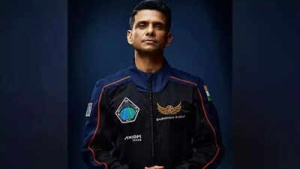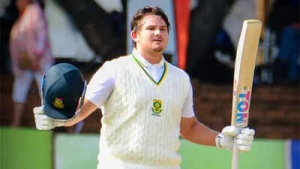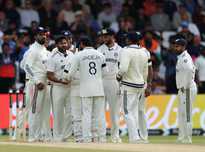Shubhanshu Shukla, currently aboard the International Space Station (ISS) as part of the Axiom-4 (Ax-4) mission, is set to interact with students and scientists at ISRO via ham radio on Friday, July 4.

This unique event is part of the ARISS (Amateur Radio on the International Space Station) program, which aims to inspire interest in STEM education by connecting students with astronauts in orbit. The interaction will be facilitated through a telebridge at the U R Rao Satellite Centre in Bengaluru.
The Axiom-4 mission is a 14-day commercial spaceflight by Axiom Space, featuring four astronauts engaged in pioneering scientific research. This research could significantly impact the future of long-duration human spaceflight.
The U R Rao Satellite Centre (URSC) in Bengaluru will host the interaction via a telebridge station, with communication relayed through the K6DUE ground station. According to PTI reports, the session is scheduled for 3:47 PM IST (10:17 UTC) on Friday.
ARISS has been instrumental in bridging space exploration and education, enabling students worldwide to witness science in action beyond textbooks.
Ham radio, also known as amateur radio, is a licensed communication system operating on radio frequencies allocated for non-commercial purposes. It is favored by enthusiasts and often used during emergencies when standard communication channels fail.
In space missions, ham radio serves as a reliable communication tool, providing astronauts with a direct line to students and amateur operators on Earth. This direct interaction adds a personal dimension to science education, offering students the chance to converse with an astronaut in space.
While aboard the ISS, Shubhanshu Shukla is involved in several key experiments:
Researchers are investigating the potential of microalgae as a sustainable and nutrient-rich food source for astronauts. Microalgae also play a crucial role in oxygen recycling and waste management. Shukla has planted sample bags of microalgae and is capturing high-resolution images of their growth. Studying the effects of microgravity on algae growth could lead to the development of closed-loop life-support systems, essential for missions to the Moon, Mars, and beyond.
This project utilizes virtual reality headsets to study cognitive performance in microgravity. Astronauts wear the headsets and participate in attention-based tasks while their brain activity is monitored using functional near-infrared spectroscopy (fNIRS). The data collected will help scientists understand how space travel affects mental acuity, motor function, and memory. This information is vital for future deep space exploration, where astronauts must perform critical tasks under stressful conditions in confined environments.
This research aims to integrate biometric data with AI-based mission analytics. The goal is to monitor how space impacts cardiovascular wellness and balance systems, using real-time data analysis and predictive models. This research could revolutionize in-flight medical monitoring and potentially lead to the development of remote diagnostic devices for use in rural or emergency settings on Earth. This demonstrates the potential of space research to drive medical innovation.
Newer articles
Older articles
 Heart Attack: Don't Ignore These 5 Early Warning Signs That Can Appear Weeks Before
Heart Attack: Don't Ignore These 5 Early Warning Signs That Can Appear Weeks Before
 Bangladesh Coach Phil Simmons Temporarily Steps Away From Sri Lanka Tour for Medical Checkup
Bangladesh Coach Phil Simmons Temporarily Steps Away From Sri Lanka Tour for Medical Checkup
 Hydration Habits Could Significantly Lower Risk of Heart Disease, New Study Suggests
Hydration Habits Could Significantly Lower Risk of Heart Disease, New Study Suggests
 Rohit Sharma Hails T20 World Cup Win: 'Barbados Forever in My Veins' After India's Triumph
Rohit Sharma Hails T20 World Cup Win: 'Barbados Forever in My Veins' After India's Triumph
 Astronaut Shukla to Connect with Indian Students, ISRO Scientists from Orbit
Astronaut Shukla to Connect with Indian Students, ISRO Scientists from Orbit
 FIFA Club World Cup 2025: Upsets, Messi Magic, and 2026 World Cup Concerns Emerge
FIFA Club World Cup 2025: Upsets, Messi Magic, and 2026 World Cup Concerns Emerge
 Teenage Star Lhuan-dre Pretorious Smashes 61-Year Record, Youngest South African to Score Test Century on Debut
Teenage Star Lhuan-dre Pretorious Smashes 61-Year Record, Youngest South African to Score Test Century on Debut
 Steve Smith Eyes Grenada Test Return After Injury Layoff
Steve Smith Eyes Grenada Test Return After Injury Layoff
 Black Caps Set for Blockbuster Home Summer Against Cricket Giants Australia, England, South Africa & West Indies
Black Caps Set for Blockbuster Home Summer Against Cricket Giants Australia, England, South Africa & West Indies
 India's Batting Woes: Coach Gambhir Defends Lower Order After Test Collapse
India's Batting Woes: Coach Gambhir Defends Lower Order After Test Collapse